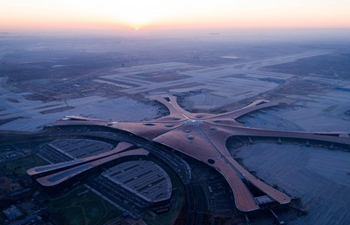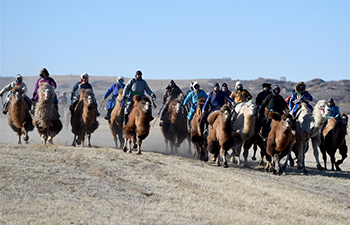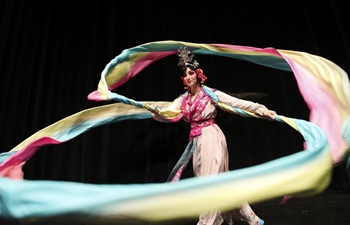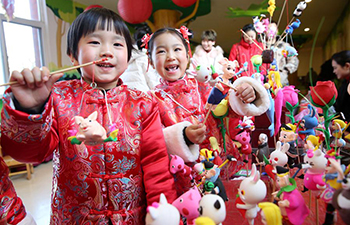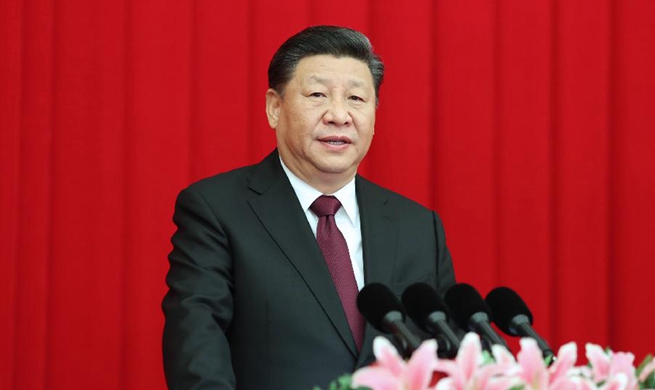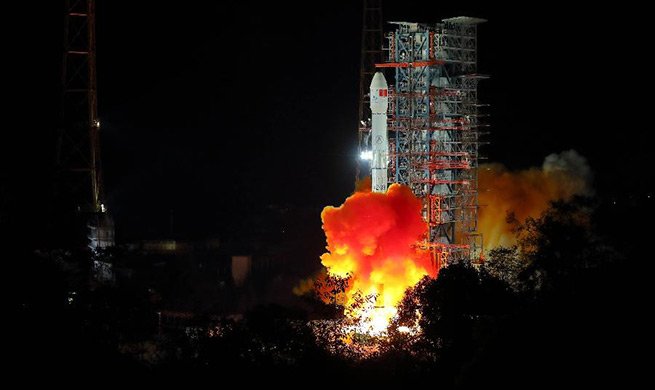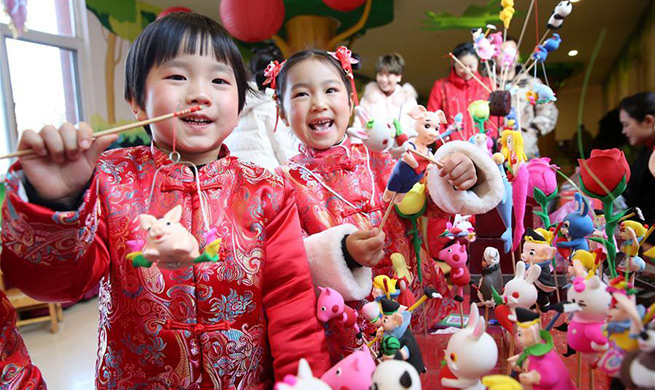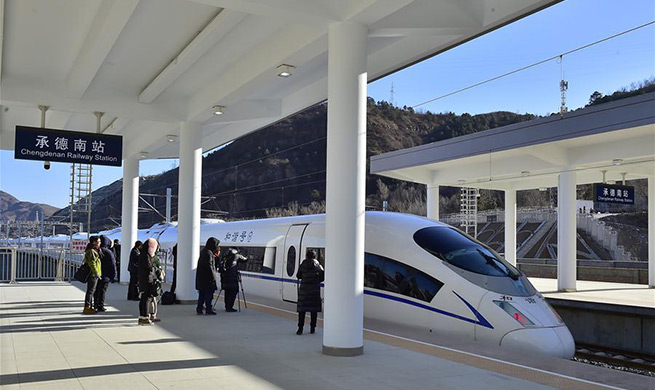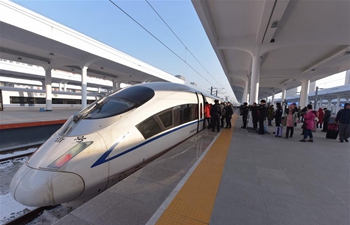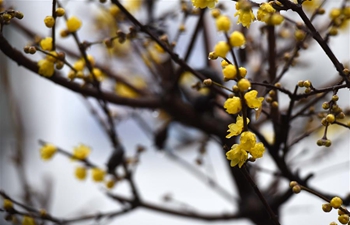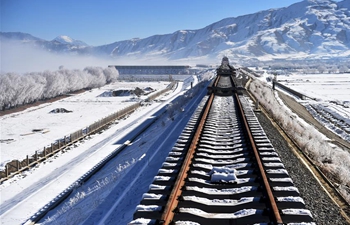by Julius Gale
JUBA, Dec. 30 (Xinhua) -- The year 2018 has witnessed significant turnarounds for South Sudan, as the world's youngest nation tries to rise from a five-year civil war with a fresh peace deal that brought erstwhile rivals back to Juba, the capital, for joint celebrations.
Dec. 15 marks the fifth year since South Sudan plunged into a conflict that killed tens of thousands of people and displaced over 4 million others.
NEW PEACE DEAL
The year 2018 will go down in history books as a period when South Sudan leaders stepped back from using violence to address political differences and turned to dialogue once more as a means to seeking common good for the nation.
Following the collapse of a 2015 peace agreement in July 2016, the warring factions inked a power-sharing deal in neighboring Sudan in September, and the latest deal appears be to holding despite sporadic fighting in the past three months.
"2018 is unique because we had peace, and before that the routine challenges were many," said Susan Wasuk, head of a women's group in Juba.
"After the signing of the peace, although there are those who are still practicing the harmful acts of violating people's rights, there is a bit of change," she said.
PEACE CELEBRATION AND RETURN OF REBEL LEADERS
At the end of October, a huge gathering was staged in Juba, where regional leaders joined South Sudanese President Salva Kiir, rebel leader Riek Machar and thousands of fellow South Sudanese to celebrate the latest peace deal.
"I want to reiterate that the war in South Sudan has come to an end and we have forgiven each other and we have decided to move forward," Kiir told the cheering crowd.
The return of Machar, who was Kiir's deputy before the two fell out, was seen as a major milestone in the country's protracted peace efforts.
Machar fled to neighboring Democratic Republic of Congo (DRC) in 2016 following the outbreak of fresh violence in Juba.
"I came only to confirm to people that I am for peace. The past is gone. We have opened a new chapter for peace and unity," said Machar.
James Okuk, senior research fellow at the Center for Strategic Policy Studies, a Juba-based think tank, said the signing of the peace agreement and subsequent celebrations marked key achievements for South Sudan in 2018.
But Okuk warned that more difficult times awaits as the parties to the pact enter the implementation phase of the agreement.
"So far nothing has come out from the parties and we have not seen something concrete," Okuk said. "The peace is still in the pipeline. So we have to wait."
OIL AND ECONOMIC RECOVERY
According to the World Bank, South Sudan is the most oil-dependent nation in the world, with oil accounting for almost the totality of exports, and around 60 percent of its gross domestic product (GDP).
But after the young nation descended into civil war in late 2013, oil production fell from 350,000 barrels per day (bpd) in 2011 to less than 130,000 bpd in 2014 amid soaring inflation.
Since the signing of the new peace agreement, fighting has drastically reduced and some oilfields in the northern parts of the country are reopening.
The cash-strapped government is betting on increased oil revenue to resuscitate South Sudan's ailing economy, and the latest peace.
South Sudanese citizens who have born the devastating effects of the conflict and economic woes for half a decade hope the relative peace will turn things around and help improve the dire situation.
"By the end of this year, I believe people will be positive and look at 2019 as a year of change," said a civil rights activist who identified herself by the first name, Sarah. Enditem
